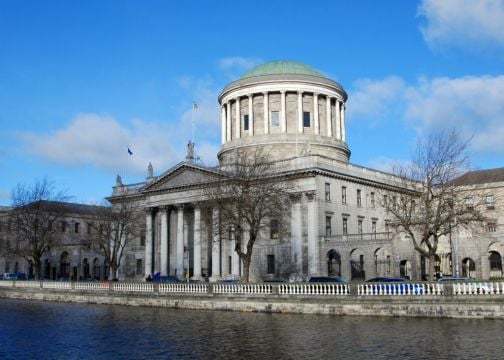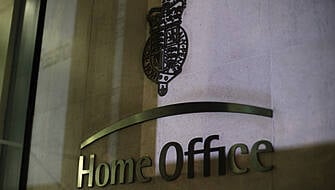An application by Independent News and Media (INM) plc for a stay on proceedings against it by two of its former executives over an alleged data breach in the company in 2014 has been refused by the High Court.
Former INM CEO Gavin O'Reilly and former INM director of corporate affairs Karl Brophy are suing INM, and its former chairman Leslie Buckley, on grounds including alleged breach of privacy and data protection rights.
The defendants deny the claims. Mr Buckley took no position on the stay application but also denies any wrongdoing and has authorised a full defence, the court heard.
INM, in its application, said a stay should be granted until two inspectors, appointed by the High Court, have completed their investigation into the matter.
Protected disclosures
The inspectors were appointed in 2018 following an application to the court by the Office of the Director of Corporate Enforcement (ODCE) over a number of matters, including the alleged 2014 data breach.
The ODCE had carried out its own inquiry before this following protected disclosures by two former executives including its then CEO Robert Pitt.
Mr O'Reilly and Mr Brophy opposed the INM stay application.
In his judgment refusing the INM application, Mr Justice Garrett Simons said INM argued there was a significant overlap, if not complete identity, between the legal issues which supposedly fall to be “determined” by the inspectors, on the one hand, and by the High Court in the O'Reilly/Brophy proceedings, on the other.
It had also submitted that the inspectors will carry significant evidential weight in downstream civil proceedings, and will be admissible in the O'Reilly/Brophy proceedings under company law.
The plaintiffs disputed INM's characterisation of the statutory investigation. The High Court inspectors are not a specialist tribunal pronouncing on legal issues but, rather, are primarily inquisitorial finders of fact who report to the High Court, it was argued.
The inspectors are also not adjudicating upon the legal rights or obligations of the parties to the O'Reilly/Brophy litigation and would not reach a binding determination on any relevant point of law which is of assistance to these proceedings, it was claimed.
The court hearing this case could reach different conclusions of law and fact than those of the inspectors, it was argued.
Statutory investigation
Mr Justice Simons said the company failed to put forward any countervailing factor which would justify interfering with the plaintiffs’ constitutional right of access to the courts.
The plaintiffs were entitled to have their proceedings heard and determined within a reasonable period of time, he said.
The alleged wrongs are said to have occurred more than seven years ago, and they were entitled to bring their claims on for hearing and to have them adjudicated.
In relation to the statutory investigation currently being carried out by the inspectors, he said it was "not a surrogate" for the O'Reilly/Brophy case.
The objectives of that investigation and of these proceedings, respectively, were not the same, he said.
Moreover, he said, the findings ultimately reached by the inspectors will not be binding upon the parties nor determinative of the issues arising in these proceedings.
The Companies Act 2014 envisages that the determination reached in subsequent civil proceedings might well be different from the facts found by, or an opinion expressed by, an inspector in their report, he said.
"Such an outcome is not an unwelcome aberration to be avoided at all costs; if necessary, by restraining an individual plaintiff from progressing their civil proceedings”, he said.

Rather, he said, it was the inevitable consequence of the distinction in status between the administration of justice, on the one hand, and an investigation under the Companies Act 2014, on the other.
The judge said a second application before the court, from Mr O'Reilly and Mr Brophy, seeking judgment n default of defence, remains outstanding.
His provisional view was that INM should now be afforded an extension of time of forty-two days within which to file their defence.
That means unless the defence is delivered, and a copy of such defence is filed in the Central Office of the High Court, within that 42- day period, judgment shall be entered for the plaintiffs in the Central Office without any further application to the court.







